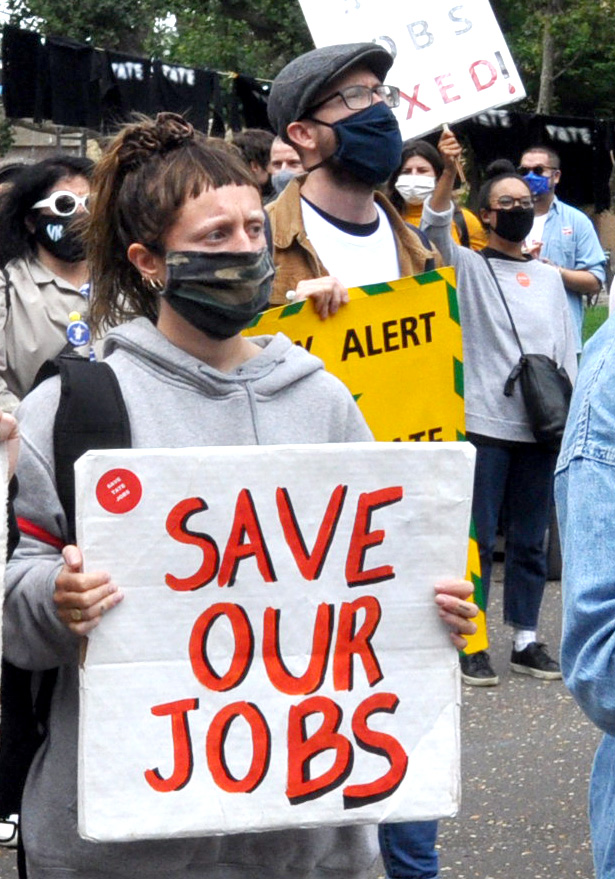THE INTERNATIONAL Monetary Fund is projecting a deep recession in 2020, with global growth projected to be -4.4% in its latest update to the World Economic Outlook, IMF chief economist Gita Gopinath warned yesterday.
‘So we continue to project a deep recession in 2020 with global growth projected to be -4.4%.
‘This is a small upgrade relative to our June numbers. We expect growth to rebound partially in 2021, coming back to 5.2 per cent.
‘However, with the exception of China, all advanced economies and emerging and developing economies, excluding China, we are projecting output will remain below 2019 levels well into 2021.
‘Therefore, we see that the recovery from this catastrophic collapse will likely be long and even highly uncertain.
‘There are broad risks to the upside and to the downside.
‘On the upside, we could have positive development in terms of treatments and vaccines that could hasten the end of this health crisis.
‘And we could also have more policy support that would help. But there are many downside risks.
‘We could have worse news on the health front, and we could have greater financial turmoil at a time when debt is at the highest level in recorded history.
‘And we have rising geopolitical tensions that could also derail the recovery,’ she said from her home in Boston.
The IMF’s Financial Counsellor Tobias Adrian said: ‘Near-term financial stability risks have been contained, for the moment. Unprecedented monetary easing, fiscal measures like transfers and credit guarantees, and financial policies have helped maintain the flow of credit to the real economy.
‘These extraordinary measures have helped prevent what might have been destructive macro-financial feedback loops between financial markets and the economy.’
Adrian warned: ‘But policy makers should remain vigilant. Financial vulnerabilities are rising,’ said Adrian.
‘Unprecedented policy measures have been necessary, but the burden of debts and deficits is likely to be a drag on the economy for years to come.
‘If they are not addressed once a sustainable recovery takes hold, as the crisis continues, corporate liquidity pressures may morph into insolvencies, especially if the recovery is delayed.
‘The global banking system is well capitalised.
‘But some banking systems have a weak tail of banks and they could experience aggregate capital shortfalls in an adverse scenario.
‘Some emerging market and frontier economies already face financing challenges, and some of them may confront debt distress.’
He said: ‘Liquidity support should be gradually removed once the pandemic is under control.
‘To deal with debt overhang: recapitalise, restructure, or resolve non-viable firms.’
Working people all over the world will see that they cannot stand idly by and watch their living standards, jobs and the futures of their children being destroyed – and that the time has come for the working people of the world to bury capitalism and go forward to a world socialist republic with a nationalised economy and planning of production to satisfy people’s needs. This is the only way forward.
